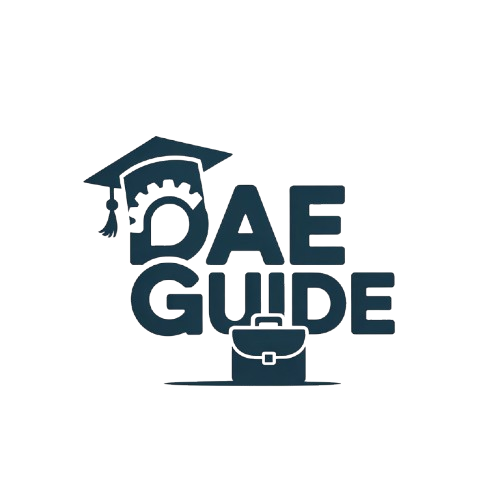How AI is Transforming Recruitment and Job Search in 2025
How AI is Transforming Recruitment and Job Search in 2025
Artificial Intelligence, or AI, is technology that allows machines to perform tasks that usually need human intelligence. Instead of only following simple commands, AI systems can learn from data, make decisions, and improve their performance over time.
AI works in
different ways:
It learns by
studying large amounts of data.
It reasons
by comparing options and choosing the best one.
It solves
problems by finding answers to complex challenges.
It makes
decisions quickly using facts and patterns.
It
understands language so it can interact with people through tools like catboats
and voice assistants.
In everyday
life, AI powers search engines, streaming recommendations, digital assistants,
facial recognition, and even self-driving cars. It is becoming a key part of
how businesses, governments, and people work today.
Key Types of
AI
Narrow AI
Narrow AI, also called Weak AI, is designed to perform one specific task very
well. It does not have the ability to think beyond that task. Examples include
chatbots that answer customer questions, spam filters that block unwanted
emails, and virtual assistants like Siri or Alexa. These systems are useful but
limited to their programmed function.
General AI
General AI, sometimes called Strong AI, is still a theoretical concept. It
would have the ability to think, learn, and perform any intellectual task that
a human can do. Unlike Narrow AI, it would adapt to new situations without
needing extra training. Scientists and researchers are still working toward
this level of AI, but it does not exist yet.
Machine Learning (ML)
Machine Learning is a branch of AI that allows systems to learn from data
instead of being fully programmed by humans. The system improves its
performance by analyzing data patterns. For example, ML powers recommendation
systems on Netflix and YouTube, fraud detection in banking, and predictive text
in smartphones.
Deep Learning (DL)
Deep Learning is a more advanced form of Machine Learning. It uses neural
networks that work similarly to the human brain. These networks allow AI to
handle very complex tasks like image recognition, speech recognition, natural
language processing, and even self-driving technology. Deep Learning requires a
lot of data and computing power but gives highly accurate results.
How AI
is Changing Recruitment in 2025
The
hiring process in 2025 is no longer the same as it was a few years ago.
Artificial Intelligence has become a core part of recruitment. It is changing
how companies find talent, how candidates search for jobs, and how recruiters
make decisions.
Faster
Resume Screening
Recruiters no longer need to spend hours going through stacks of resumes.
AI-powered tools can scan thousands of applications within seconds. They match
keywords, skills, and qualifications with the job description, allowing
recruiters to focus only on the most relevant candidates.
Smarter Candidate Matching
AI systems go beyond just checking skills. They analyze work history,
education, achievements, and even career patterns to suggest the best-fit
candidates. This reduces the risk of hiring the wrong person and helps
companies build stronger teams.
Automated
First Interviews
Many companies now use AI chatbots for initial interviews. These bots ask
structured questions, assess responses, and even evaluate communication style.
Once the screening is done, they forward the shortlisted candidates to human
recruiters for further evaluation.
Reducing
Hiring Bias
Human decisions can sometimes be influenced by age, gender, or background.
Well-trained AI systems minimize these biases by focusing only on skills,
qualifications, and performance data. This creates a fairer hiring process.
Predictive
Hiring Decisions
AI uses past hiring data and employee performance records to predict how well a
candidate will do in a role. This helps recruiters make more informed choices
and improves employee retention.
Personalized
Job Recommendations
For job seekers, AI makes the process easier. Platforms powered by AI suggest
opportunities that match a candidate’s skills, experience, and career goals.
This not only saves time but also improves the overall job search experience.
Advanced
Video Interview Analysis
AI can analyze recorded interviews by looking at facial expressions, tone of
voice, and body language. These insights give recruiters additional information
to evaluate candidates more accurately.
Saving
Time and Costs
By automating repetitive tasks like resume screening and scheduling, AI speeds
up the hiring cycle. This reduces recruitment costs and allows HR teams to
focus on strategy, employee engagement, and workplace culture.
AI is not replacing recruiters. Instead, it is making them more effective. By
handling routine tasks and providing deeper insights, AI helps recruiters make
smarter, faster, and fairer hiring decisions.
How
You Can Use AI to Search Jobs
AI is
not only helping companies’ hire, it is also making job hunting easier for
candidates. If you know how to use it, AI can save you time, match you with the
right opportunities, and improve your chances of getting hired.
Smart
Job Portals
Modern job websites use AI to recommend jobs based on your resume, skills, and
search history. Instead of scrolling endlessly, you get tailored job
suggestions that fit your profile.
AI-Powered
Resume Builders
Tools like Rezi or Kickresume use AI to create professional resumes. They
adjust your content to match job descriptions, highlight your strengths, and
increase your chances of passing AI resume screeners.
Personalized
Job Alerts
AI can send you instant alerts for jobs that match your career interests. This
keeps you ahead of other applicants and saves you from missing new postings.
Skill
Gap Analysis
Some AI platforms analyze your resume and tell you which skills you need to
learn for your target role. For example, if you want a data analyst job, the
system might suggest learning SQL or Python.
AI
Career Coaching
Chatbots and career assistants can guide you through the job search process.
They suggest industries to explore, help you prepare for interviews, and even
review your cover letters.
Preparing
for AI-Based Interviews
Many companies now use AI for initial interviews. You can practice with
AI-based mock interview platforms that give feedback on your voice, tone, and
body language so you perform better in real interviews.
Networking
Suggestions
AI tools on platforms like LinkedIn recommend people you should connect with.
They highlight recruiters, hiring managers, and professionals in your industry
who might help you land a job.
Salary
Insights
Some AI-driven platforms estimate salary ranges for jobs based on market data.
This helps you negotiate better when you receive an offer.
AI can
be your personal assistant during a job search. It guides you to the right
opportunities, helps you prepare, and increases your chances of success. To
benefit fully, keep your resume updated, learn new skills, and use AI-powered
platforms regularly.
Future
Outlook
AI
will play an even bigger role in job search and recruitment in the coming
years. Job platforms will use AI to match candidates with the right roles more
accurately than traditional search filters. Virtual career assistants and
chatbots will guide job seekers through creating resumes, applying, and
preparing for interviews.
Hiring
will focus more on skills than formal degrees. AI systems will evaluate your
experience, skills, and performance history to find the best fit. Video-based
screening will grow, with AI analyzing communication, confidence, and cultural
fit during interviews.
Global
job opportunities will become easier to access, as AI connects candidates with
remote roles anywhere in the world. Continuous learning will be essential, with
AI recommending new skills to keep you competitive. Ethical standards and
regulations will also increase to ensure AI hiring is fair, unbiased, and
transparent.
AI will not replace recruiters or job seekers. It will make the hiring process
faster, fairer, and smarter, helping candidates find better opportunities and
helping companies hire the right people.



